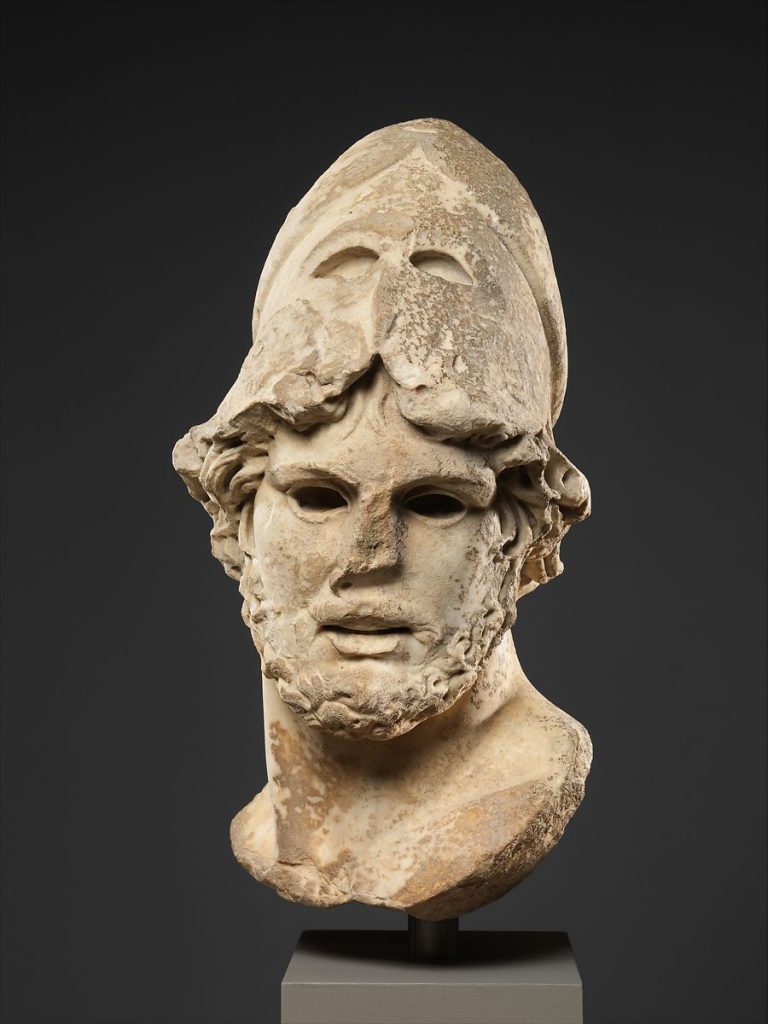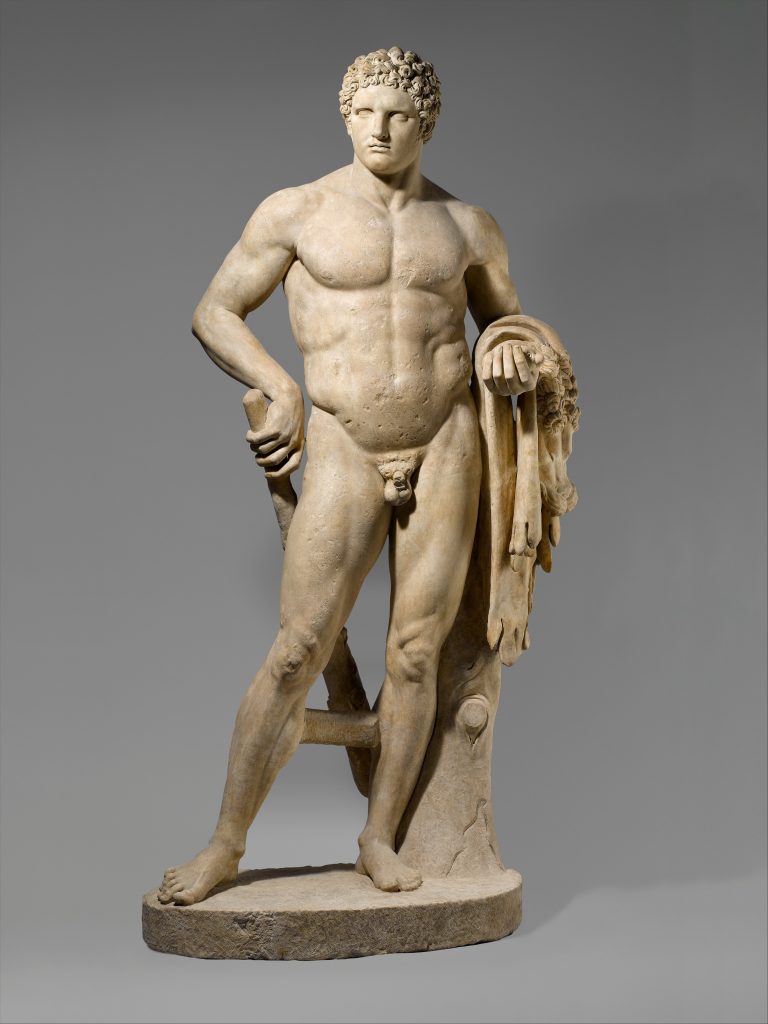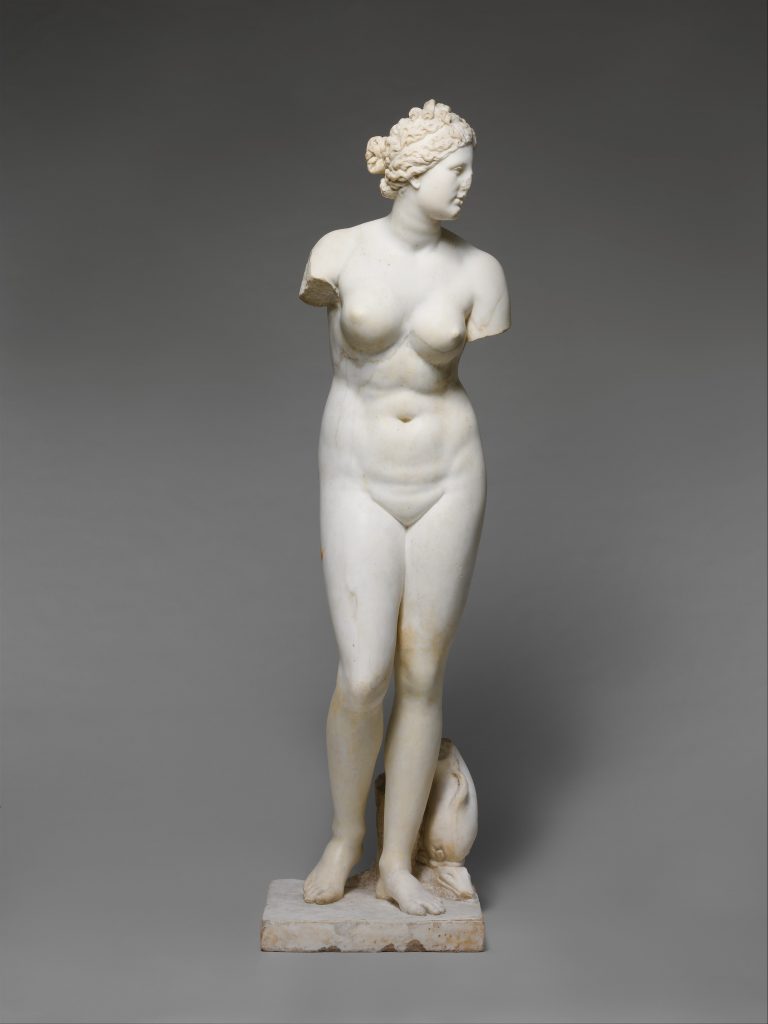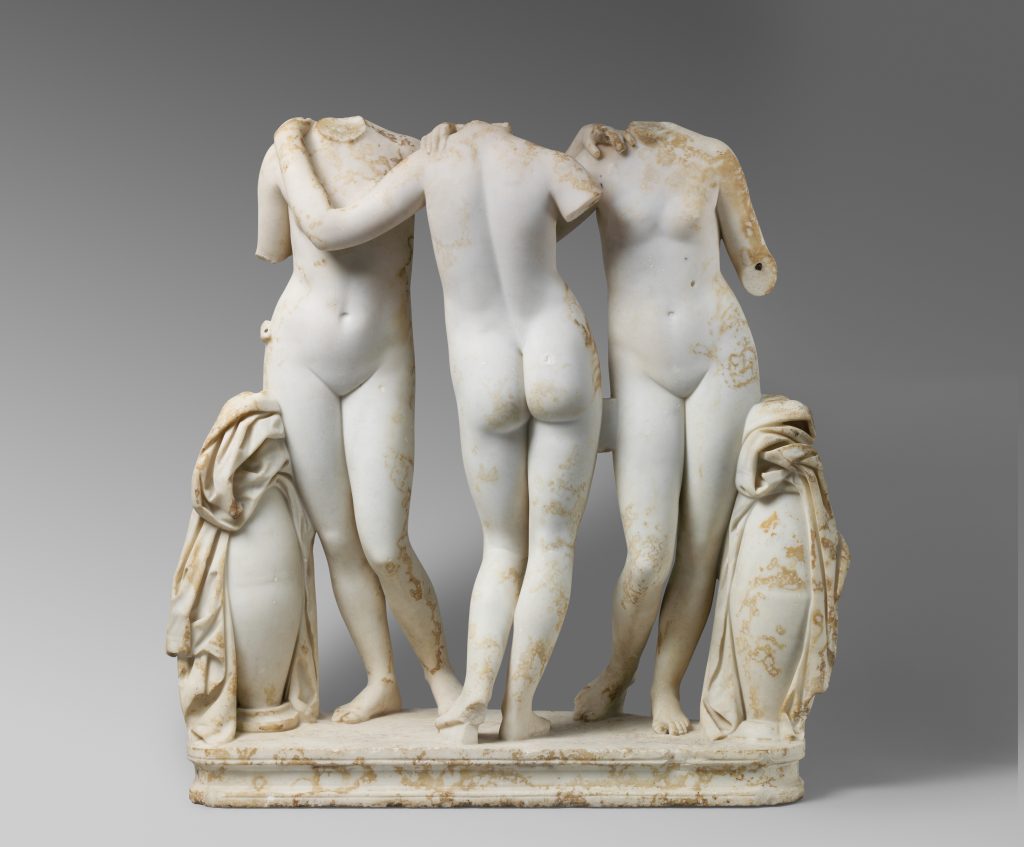
Roman copy of a Greek bronze statue of the middle of the 4th century B.C.
[Source]
The first proposition I’ll ask you to entertain is that there is pleasure in the infliction of suffering. It’s not so far-fetched given the examples on the Niceguys subreddit; among the catapults of burning-oil paragraphs, or the flaming arrows of deranged anger, I find a delighted outpouring of relief, of imprisoned demons given freedom. Of course, what distinguishes this as Niceguy behaviour is that it’s done with an air of moral superiority, and targeted at subjects who were, just a moment before the outburst, showered in affection.
The conclusion we might be tempted to make is that Niceguys are hypocritical; that truly, they are heartless wretches who mask their egoistic desires. Surely they could be, but this might be contiguous with being nice itself. Consider Nietzsche’s dichotomy of Rome versus Judea. Of course, there is a great deal of complexity that’s trampled upon in making these two concepts opposing forces, but it’s nonetheless a useful cartoon for framing Niceguy psychology. The Roman Empire had no problem inflicting cruelty; during the First Jewish-Roman War, there were would be hundreds of people who would be crucified in a single day, with their corpses devoured by birds and dogs. The revolt in Judea ended with tens of thousands of Jews being executed, often by crucifixion, while Jerusalem was looted and destroyed. It was a clear message to people to know their place, and the casualty counts of all the Jewish-Roman wars range into the millions, with plenty of people winding up as slaves.
There were many people who went around claiming divine guidance in their intent to change the tyrannical rule of the Empire. Some of them amassed thousands and were prepared to fight, while others fled to the forest, but they all shared a painful death at the hands of the state’s soldiers. The most familiar to us is the preacher from Nazareth who was seen as yet another Jewish rebel and prosecuted as such. St. Paul provocatively styled Jesus as the Son of God, the Redeemer who spoke the Good News or The Gospel, terms reserved for the Roman emperor, which is why it’s unsurprising that Nero executed Paul. Jesus was the inverted image of the emperor, advocating love of one’s enemies plus care of the sick and poor, rather than excellence, courage, power and domination.
For the large swaths of people under the iron gaze of Rome, it would be too devastating to simply accept defeat, to swallow the bitter pill of being the vanquished, and waste their lives toiling away for a more powerful master. Instead, such abject impotence meant that cruelty had to be turned fully inward, where instincts resembling the overflowing vitality of Rome was hunted down with righteous zeal. Pride, greed, wrath, envy, lust, gluttony and sloth were concepts used to tarnish the basic glee of life enjoyed by the powerful; a variety of sexual partners, delicious and abundant food, the conquering of enemies, wealth, striving, and free time.
This inward turn gave birth to ever greater forms of hatred, with fantasies of another world where enemies would not simply be killed, but where they would undergo the most unimaginable torture for all eternity, their pain literally incalculable. Rare and precious worldly life was transformed into an unimportant smudge in the grand scheme of things, in the vast supernatural battleground, where the the loser would be rewarded eternally.
This type of morality is simply necessary for most people under the rule of an empire, and a state generally. States are not formed by equals and with social contracts, but by violence perpetrated by warrior elites, and by the mass enslavement of peaceful communities. In the magnificently mannered and unviolent (relatively speaking) 21st century metropolis, I’ve gone through my entire adult life without anything resembling a physical altercation. That’s because it’s expected that my cruelty will turn inward; I’ve had plenty of practice in school, that subtle form of cruelty, where unruly impulses (perhaps most of all the sexual urges) are molded into something tame and predictable.
There’s something beautiful about this mass cruelty; a frightful sort of beauty. What comes to mind is the image of soldiers goose-stepping in perfect synchrony, their bodies trim and strong, under perfect control, their uniforms immaculately clean. There are copious benefits in being one of the molded subjects, and these benefits are widely adored. It’s lovely to live day-in day-out without some public freak-out by people who have fallen through the cracks of the taming process (and, it’s rare that such an about-face towards wildness amounts to anything).
So much so, in fact, that values like mildness, mediocrity and servitude tend to constitute modern morality, and those who have been most crushed by life tend to embrace it. But the love of cruelty has a pressure which harangues for satisfaction. I attribute the fantastic success of violent media to the fact that there’s a need to relish in cruelty. In my anecdotal observations, there is some disparity in the sexes regarding different flavours of cruelty; for men I see the attraction in, say, the purified and direct violence of the UFC, whereas for women it’s the bracing and chilling true crime documentaries, which have more of an indirect proximity to the love of cruelty. My own flavour is that of Grand Theft Auto, where massacres are turned into gleeful jamborees.
Among this invisible carnival of ugly demons alternately being caged and let loose, there is a strange phenomenon brewing which we could see in the fight of Judea against Rome. That showdown gave rise to the ‘Disciple of Love’—the effusive outpourings of love, peace, generosity, forgiveness. Yet it also gave birth to the Apocalypse; a psychedelic orgy of vindictive (but righteous!) cruelty, death, destruction and mayhem. This is because the festering hatred of the impotent gave a much greater depth to the human soul, allowing it to reach new heights of love.
***

[Source]
Now to fit the Niceguy into this picture: perhaps through physiology, or some wayward life experiences, the will of a Niceguy was weakened dramatically, then finally shattered by the cruelty of education and socialization, to such a degree that their will has a distinctly negative character, one of sacrifice. Therefore, the Niceguy takes the morality of the defeated loser—that of someone who is helpful, useful, and kind. It is through these self-abasements that a sense of strength and superiority is finally achieved, however indirectly. With the revitalized storm of energy provided by a beautiful woman, the Niceguy is given strength to perform whatever actions are necessary to demonstrate their ability for moral purity. And for their morality, that means their ability to increase inner cruelty: to abolish pride, lust, and greed.
Mind you, the woman must offer herself, since the Niceguy needs to circumvent the perceived ugliness of taking ownership and pride in their own instinct of lust, as this has been the essence of their moral education. Indeed, the degree to which they are willing to be commanded is seen as proportional to the expected reward. And this willingness is real: the Niceguy is truly ready to perform whatever selfless actions are necessary for the benefit of the woman, feeling joyful all the while.
But! The woman does not seem to care! Worse still, he is rejected; his inner torment counts for nothing, and his final victory of self-sacrifice is seen as creepy, that most corrosive of epithets which instantly dissolves esteem. Then comes the wrath of the vanquished against the Roman master—there is no word harsh enough for such an evil (read: powerful) master, and no punishment severe enough. Maybe the Niceguy won’t want her to burn in hell for all eternity, but maybe her entire gender will be condemned by words that seek to draw psychic blood.
Therefore, we aren’t really talking about hypocrisy, so much as the understandable and unfortunate psychological development of the weak-willed. The spectacle of watching this happen is entertaining, but the hands of the spectators aren’t so clean; after all, laughing at the Niceguy gives pleasure via insult and humiliation, though this cruelty is automatically justified by their morally suspect position. The Niceguys subreddit describes its targets as ‘manchildren‘, ‘douches‘, ‘spineless‘, ‘pathetic‘ people; I imagine a fabulously dressed aristocrat spitting on a dirty peasant in rags.
But if we were to become bloodhounds of cruelty, our noses would be overwhelmed by the fog of its scent. It always come with a cloak of disavowal, because it must be disavowed in order to not constantly interfere with everyday life. The proudly cruel will be found in positions of power everywhere, their natural habitat, in tandem with an advanced ability to cloak.
And who could really blame them? Would you be different? Are you different? If I was a beautiful, healthy young woman, would I steadfastly refrain from using my beauty to control and manipulate men like myself? Would I not find some rarified pleasure in causing frustration and vexation with a sarcastic glance? Would I not wield my impeccably groomed hair as a weapon? Well, maybe I would think twice depending on where I am. Groups like the Taliban are honest about their weakness in regards to female power since, at the very least, that mighty hair must be hidden. They recognize and tyrannize women without mercy, as a sort of pre-emptive cruelty to combat the power of beauty which they cannot tolerate—that old-timey repression of women which characterizes the bulk of human history, a history of weak men.
***

Roman copy of a Greek statue of the 3rd or 2nd century B.C.
[Source]
The Taliban’s horror of emancipated women helps illustrate our own iteration of Rome versus Judea: America versus Islam. America, a cloaked ‘natural’ aristocracy based on the Roman Republic which rules most of the planet, and Islam, a bass-boosted Arabic remix of Judaism. The Sicarii of ancient Rome, a group of assassins, were a sect of Jewish Zealots who used sicae (small daggers) hidden in their cloaks, and went around stabbing sympathizers of Rome. This tactic of terrorism was paid back not just in full, but with compound interest, such as the destruction of the entire city of Jerusalem (along with the aforementioned bacchanal of public executions). Radical Islamic sects have decided to use terrorism in dealing with empires, the ultimate masters of terror, but in doing so they have awakened the beast; entire countries now lay in ruin due to American wrath. Although the Taliban ‘won’ the Afghan war, their victory is owing to their complete disregard for life which, for them, is an infinitesimal blip. Out of this life-hating perspective grows a nearly supernatural endurance, as they have nothing to lose since worldly life is essentially corrupt. Their rallying slogan: ‘we love death as you love life‘.
Radical Islamic sects which traffic principally in violence are the extreme versions of Incels and Niceguys, and appropriately also attract weak, alienated men who have sacrificed their will to no effect—even to detrimental effect. These men are finally given the opportunity to engage in divinely sanctioned murder of the empire’s representatives, civilians or otherwise, in a no-holds-barred frenzy of (in their eyes) justified cruelty. I’m reminded of that Star Wars meme which cleverly shifts the common perception of the plot: ‘the story of an orphaned boy who becomes radicalized after a military strike kills his family; he is indoctrinated into an ancient religion, joins a band of rebel insurgents, and carries out a terrorist attack killing 300,000 people‘.
But the fantasy of flaunting my beauty would also be open to reprisal on a more mundane level. Listening in to the HealthyGamerGG therapy sessions featuring female Twitch streamers, it seems the vicious attacks of the impotent have successfully torn down these avatars of beauty. After all, to have an intimate window into the life of someone whose mere appearance is a source of great sensual pleasure, and to see them happy—this is obscene for the weak, who have internalized their suffering as a virtue, and wish to have the world stepping in line with them. To fly in the face of this is essentially evil, hence their feeling of justified cruelty towards them. And, even when the young & beautiful evince suffering, the weak chastise them for daring to step on their territory. I see comments which outrageously ask how the privileged can dare suggest they’ve tasted true suffering! They have the audacity to encroach on the kingdom of the weak!
Surely, such crude markers as beauty and youth aren’t really that important anyway, and people can be happy alone or in relationships just as they are. There are plenty of people from both sexes who are tormented by loneliness, desperate for companionship, and they will do what it takes to patch over this festering psychological wound, sometimes healing both parties marvelously. There’s lots of hope for losers, even if that hope might in some cases consist in a mutual drowning. But, to give the Niceguys their due, I would point out that small differences in physiology can count for a lot. Empirical studies which examine the link between intelligence and height found that bishops tend to be taller than preachers in small towns, sales managers are taller than salesmen, and white-collar workers are taller than blue-collar workers. In one study, they found a one-inch increase in height might boost weakly earnings by up to 3%, and the authors try to suggest that being taller has a positive effect on cognitive ability. The overall correlation coefficient between intelligence and height is 0.2, which is to say, it’s kinda something.
Despite it not being a huge correlation, it’s still silly to scold women for being picky about height, one of the most tiresome refrains of Niceguys. Why wouldn’t they choose someone who is a little bit smarter and a little bit richer by using height as a simple proxy? It might just be that there’s a natural affinity for height as something imposing and remarkable, the assumption being that greatness of size translates to greatness of character. This brings me to the most radioactive of all disavowed cruelty; eugenics. Is there any doubt to the fact that eugenics is alive and well?
***

(Roman copy of a Greek work of the 2nd century B.C.)
[Source]
The process of mating is one of selection, of ranking, of casting away the unwanted. This process is most effectively cloaked in a pastel-pink fabric of mystery, chance and subjectivity, so as to highlight every ancillary factor aside from its main brutality. What is more tyrannically selfish than a new couple in love, who treat the entire world as stage-dressing for their escapade, who parade their happiness like Conquistadors strolling in front of the miserable mines of Peru? This gives more fuel to the fire of the Niceguy, who imagines that he deserves sex, since the mystery of love is supposed to be a democratic one. Just as the vanquished cannot tolerate defeat and invent a heaven, so the Niceguy imagines that everyone deserves to feel attractive, including the likes of them, and the beautiful must offer them sex because good people make sacrifices. And if they are not good people? Well, then we have the content of the Niceguys subreddit.
You might notice that the predicament of the Niceguy is a thorny one; it’s a position growing out of misery and weakness, with miscalculated targets and (ironically) kindhearted intentions, resulting in scorn and humiliation, breeding further resentment and deepening hatred. The infamous Toronto van killings happened just down the street from where I live, and I fear that nothing has changed in the intervening years. I suspect the vengeful have increased in number, but they tend to meander like cloaked Sicarii through smartphone screens. There is no simple solution to alleviate their distress, least of which is flipping the script and saying: Rome good, Judea bad! There is at least one passage from Nietzsche which warns against such simplistic reading of Rome versus Judea:
Nowadays there is perhaps no more decisive mark of the higher nature, of the more psychological nature, than to be in that sense self-contradictory, and to be actually still a battleground for those two opposites.
One possible balm for Niceguys is camgirls. As a professional visual artist, I can attest that each video of Bella Brookz gyrating in lingerie is of greater value than an entire wing of a world-class museum. We would reach unprecedented troves of beauty if more resources were funneled to art dedicated to beautiful naked bodies, that unsurpassed zenith of beauty. It’s necessary for the weak to satisfy their need for sexual pleasure just as anybody else, rather than castrating their desires, and soliciting camgirls is a cheap and easy way to do it while maintaining the dignity, autonomy, and safety of the women, who are spared the grim duty of physical contact.
The demonization of pornography, as if it is a coherent and monolithic phenomenon, has the same grim and bitter flavour as the war on drugs, which coagulates disparate things like caffeine, heroin and Tylenol into an abomination of a concept. But does the world need me to tell them to adore camgirls, as if they are not already the rising deities of this century? And what of the mental health catastrophes lurking in the shadows of this new monument? Nonetheless, as a weapon against life-haters, what is more powerful than boobs and bubblebutts? Objectification is a danger, but these are weapons of terror which the Taliban will not—nay, cannot—wield.




